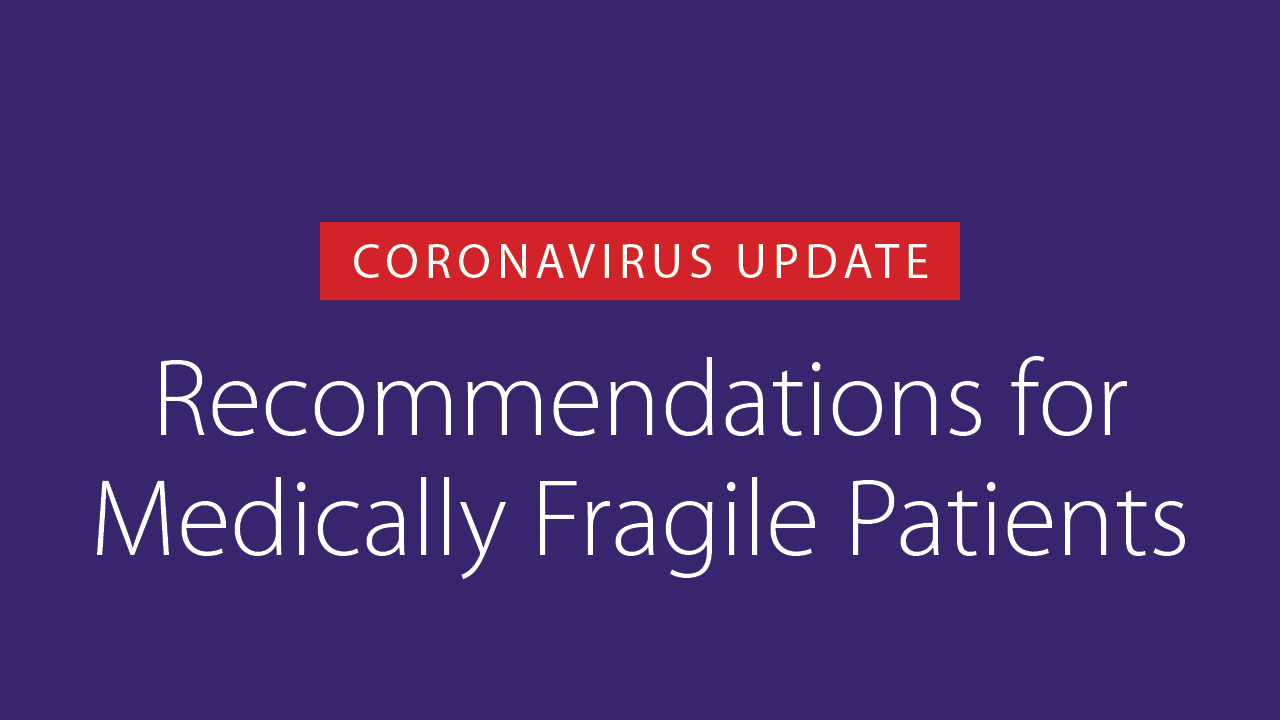From Dr. Bradshaw – Coronavirus (COVID-19) is scary, but it is particularly worrisome to those of you who have children with chronic or severe medical problems.
I hope this can offer some reassurance: South Korea has the largest data set so far published on its experience with COVID-19, and according to the latest numbers, the mortality rate in that country in people under 29 years old is ZERO. How many of those young people were medically fragile is not known at this time, as the data hasn’t been parsed that closely, but as a pediatrician, I personally find those numbers reassuring.
In addition, a small study of asthmatic patients in China who contracted COVID-19 showed that they did no worse against the virus than their peers without asthma. Nonetheless, asthma remains listed as a high-risk condition by the World Health Organization.
Safety recommendations
My logical assumption without specific data is that children with medical challenges are at higher risk if they become sick with COVID-19. So, I have compiled a list of suggestions for these families. I recognize that these steps are extremely challenging, even for families who are used to doing hard things.
- When people enter your home, have them remove their shoes outside. Have them wash their hands and face and all exposed skin immediately and change their clothes (or put on a clean jacket or cover up garment) before they touch your child.
- Do not allow anyone who is even mildly sick to visit your home.
- Severely limit the number of non-family members who enter your home. This means if you have people who help you care for your child, try to limit that to one or two, and talk with them about trying to keep themselves socially isolated, so they don’t accidentally bring coronavirus into your home.
- Be sure to have a 3-month supply of all medications and items your child needs, including feeding supplies, if required. Most insurance plans have waived requirements so that you can get 3 months of medications at one time.
- Special note: albuterol is in short supply. If your child has asthma, be sure to get refills of inhalers or nebulizer albuterol NOW. Don’t wait.
- If your child has asthma, talk with your pediatrician about whether having systemic steroids (like Dexamethasone) on hand in case of emergencies is wise. This may require a visit or telemedicine visit with your pediatrician to discuss. Do it soon.
- Many local resources that offer physical therapy, occupational therapy, speech therapy and other types of therapy for medically fragile children are closed during this time of social distancing. To the best of your ability, try to keep your kids doing their therapy at home; that will only benefit their lung health in the event of illness.
- Unfortunately, siblings of medically fragile kids need to be especially isolated from other children. Kids tend to share germs easily and they can unknowingly bring them home to their brothers and sisters.
- Please continue all of your child’s routine medications unless otherwise directed by your pediatrician. This includes inhaled steroids, aspirin, ACE inhibitors, and even NSAIDs (ibuprofen, Motrin, Advil) if advised by your child’s doctors.
We’re here for you
If you have questions about your child, please call Eugene Pediatrics to schedule a telemedicine visit, or speak with our RN Care Coordinator, Tori Oldham. If you are not a current patient of Eugene Pediatrics but you would like to have a telemedicine visit with one of our doctors to discuss COVID-19 readiness for your child, please call our office at 541-484-5437 and we’re happy to accept your child as a patient and set up a telemedicine visit with one of our providers.

